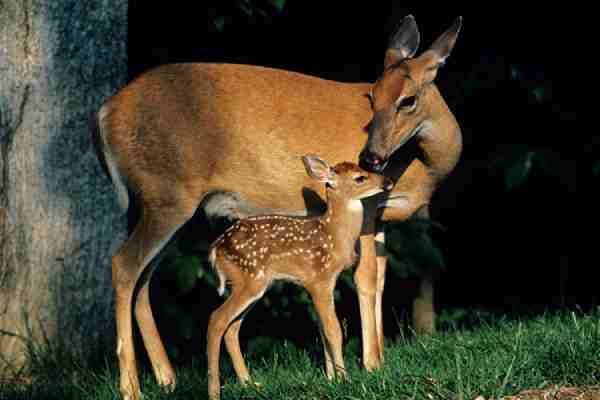Washington State, adorned with its diverse landscapes, from the rugged peaks of the Cascades to the sprawling forests and coastal expanses, offers an enticing bounty for hunting enthusiasts. The state’s rich flora and fauna provide a habitat for a wide variety of game animals, making it a hunter’s paradise.
Whether you’re an avid hunter or a newcomer to the pursuit, Washington offers a unique and thrilling experience. In this article, we embark on a virtual hunting expedition, delving into the diverse game Animals You Can Hunt in Washington State.
From majestic deer to elusive elk, from cunning predators like cougars to the vibrantly feathered upland birds, we will uncover the types of animals you can hunt in Washington. Join us as we navigate the wilderness, exploring the game, regulations, and experiences that make hunting in Washington State a true adventure.
Table of Contents
Regulatory Framework for Animals You Can Hunt in Washington State:
Hunting in Washington State is regulated by the Washington Department of Fish and Wildlife (WDFW), responsible for establishing hunting seasons, bag limits, and other rules to ensure sustainable and ethical hunting practices. The regulatory framework includes various hunting seasons based on the type of game, such as big game (e.g., deer, elk, bear), small game (e.g., upland birds, rabbits), waterfowl, and migratory bird seasons.
The WDFW carefully manages and monitors populations of game animals to maintain healthy ecosystems and prevent overharvesting. Hunters are required to obtain the appropriate licenses and tags for the specific type of hunting they wish to engage in, and these permits also help fund conservation efforts and wildlife management programs. Adhering to the regulations set forth is crucial to maintaining the delicate balance of the state’s wildlife populations and habitats, ensuring a sustainable hunting tradition for generations to come.
Deer:
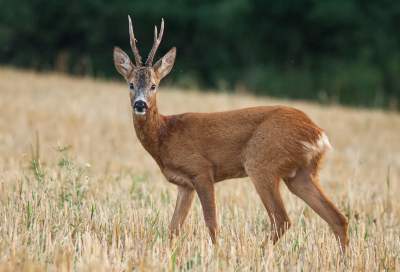
White-tailed deer and mule deer are prized targets for hunters in Washington State. With their elusive nature and keen senses, hunting deer requires skill and patience. The majestic mule deer, known for their impressive antlers, roam the diverse landscapes of Washington, from lush forests to arid plateaus. The white-tailed deer, distinguishable by their white tail and rump, present a challenging quarry for hunters. The pursuit of deer is deeply ingrained in the hunting culture of the state, providing not only a rewarding hunting experience but also a connection to the natural beauty of Washington’s outdoors.
Elk:
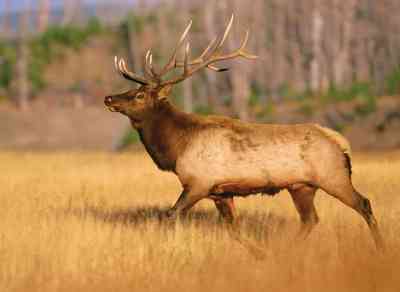
Elk, both the Rocky Mountain and Roosevelt species, offer an exhilarating and sought-after hunting experience in Washington State. The massive size and strength of elk, coupled with their wily behavior, make them a challenging quarry for hunters. Whether it’s stalking the dense forests of the Cascades for Roosevelt elk or traversing the rugged terrain of eastern Washington for Rocky Mountain elk, the thrill of the chase and the gratification of a successful hunt make elk hunting an integral part of the state’s hunting heritage.
Black Bear:

The black bear is a coveted game species for hunters in Washington State, attracting them with the allure of a challenging hunt and the prospect of a valuable hide and delicious meat. Hunting black bears demands knowledge of their behavior, habitats, and tracking skills. The diverse ecosystems of Washington, from the mountains to the forests, offer ample opportunities for bear hunting. With their keen sense of smell and elusive nature, black bears provide hunters with an exciting pursuit, making bear hunting a cherished tradition for many outdoor enthusiasts in the state.
Cougar (Mountain Lion):
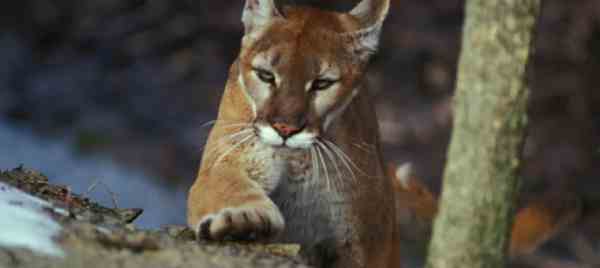
The elusive and powerful cougar, also known as the mountain lion, offers an exhilarating hunting challenge in Washington State. Hunting cougars involves an intricate understanding of their behavior, habitats, and tracking skills. Washington’s diverse landscapes, from dense forests to rocky canyons, provide a suitable environment for this pursuit. However, cougar hunting is strictly regulated and typically requires specific permits. The adrenaline-pumping experience of tracking and successfully hunting this apex predator is a testament to a hunter’s skills and a unique opportunity to engage with the wild, making it a memorable part of Washington’s hunting culture.
Moose:

Moose hunting in Washington is a special and highly regulated opportunity, typically occurring in specific designated areas. The moose, with its immense size and striking antlers, presents an exciting and challenging hunting experience. A successful moose hunt requires careful planning, knowledge of the designated hunting units, and adherence to specific regulations. The limited draw system and conservation efforts make moose hunting a coveted activity for hunters seeking a once-in-a-lifetime adventure in the wilds of Washington State.
Wild Turkey:
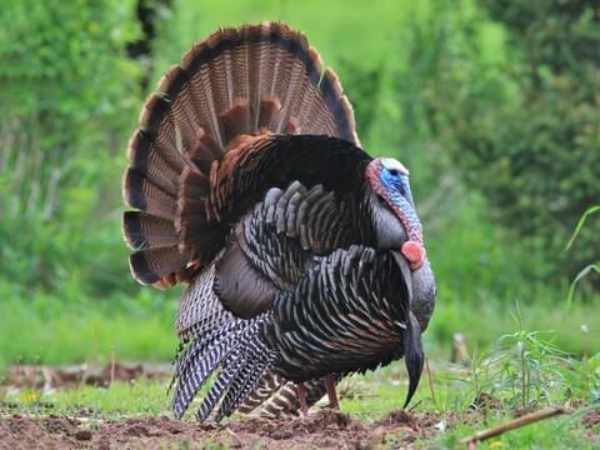
The pursuit of wild turkeys, including Eastern and Merriam’s subspecies, is a thrilling hunting experience in Washington State. With their keen senses and wary nature, hunting wild turkeys demands stealth and strategic hunting techniques. The challenge of calling, luring, and outwitting these elusive birds adds to the excitement of the hunt. Washington’s diverse landscapes, including forests, grasslands, and agricultural areas, provide excellent hunting grounds for these magnificent game birds, offering a rewarding and memorable experience for turkey hunters.
Waterfowl:
Waterfowl hunting, encompassing various species of ducks and geese, is a beloved hunting tradition in Washington State. The state’s abundant wetlands, rivers, lakes, and coastal areas provide ideal habitats for waterfowl. Hunters flock to these regions during waterfowl seasons, armed with decoys, calls, and shotguns. From the striking Mallards to the elegant Canvasbacks, waterfowl offer a diverse and challenging hunting experience. The sight of flocks taking flight against the backdrop of Washington’s scenic waterways is a cherished moment for hunters and a testament to the state’s commitment to waterfowl conservation and responsible hunting practices.
Upland Game Birds:
Upland game bird hunting is a beloved pursuit for hunters in Washington State, offering opportunities to pursue species like pheasants, quail, chukars, and grouse. The vast and varied landscapes of Washington, including agricultural fields, grasslands, and forests, provide suitable habitats for these birds. Upland game birds present a challenging hunt, often requiring hunters to employ flushing and pointing dogs for assistance. The distinctive calls and evasive behavior of these birds make the pursuit both thrilling and rewarding, adding to the allure of upland game bird hunting in the state.
Small Game:
Small game hunting is a versatile and accessible hunting opportunity in Washington State, targeting animals such as cottontail rabbits, snowshoe hares, and squirrels. The diverse habitats found throughout the state, from woodlands to open fields, provide excellent locations for small-game hunting. This type of hunting offers a great entry point for beginners, allowing them to hone their skills and familiarize themselves with hunting practices. Pursuing small game also presents a valuable way to obtain game meat and contribute to sustainable, local food sourcing.
Predators:
Predator hunting, focusing on animals like coyotes and bobcats, is an important aspect of wildlife management and conservation in Washington State. These predators can impact local ecosystems and prey populations, necessitating regulated hunting to maintain balance. Predator hunting requires knowledge of predator behavior, hunting techniques, and calling strategies. It plays a crucial role in managing wildlife populations and promoting the health and stability of the state’s ecosystems.
Conservation and Responsible Hunting:
Conservation and responsible hunting are deeply ingrained in Washington State’s hunting culture. Hunters actively contribute to conservation efforts through their participation fees and excise taxes on hunting equipment, which fund habitat restoration, wildlife research, and public land management. Additionally, ethical hunting practices emphasize fair chase, respecting legal hunting hours, and following guidelines for humane kills. Hunters play a crucial role in wildlife population management, assisting in controlling overpopulations that can lead to habitat degradation and food scarcity.
Through responsible hunting, hunters help maintain a balance within ecosystems, contributing to the overall health and sustainability of Washington State’s wildlife. By fostering a strong conservation ethic and promoting responsible hunting practices, Washington ensures a thriving natural environment for both wildlife and future generations of outdoor enthusiasts.
Final Words:
Hunting in Washington State is a blend of heritage, conservation, and respect for the outdoors. The regulatory framework, guided by the Washington Department of Fish and Wildlife, ensures that hunting remains sustainable and in harmony with nature. Responsible hunting is not merely a legal obligation but a moral duty upheld by hunters, contributing to the preservation of wildlife and their habitats.
As hunters immerse themselves in the wild landscapes of Washington, they become stewards of the land, fostering a connection that transcends the hunt itself. The unique experience of hunting in Washington is a testament to the delicate balance between tradition, conservation, and a deep-rooted respect for the natural world.
Reference:
- https://wdfw.wa.gov/hunting
- https://opticsmag.com/what-can-you-hunt-in-washington/
- https://www.reddit.com/r/WA_hunting/comments/px14z1/what_animals_do_you_hunt_in_wa/

Jeevan Kodiyan
An animal enthusiast with an interest in zoology, studying the behavior and activities of animals in the wild habitat. I work on research projects related to species conservation and endangered species protection. I also leverage zoology to become an educator, educating others about the importance of protecting our natural environment and the beauty of animals in their natural habitats.

